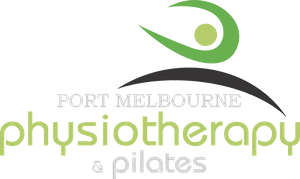A common complaint presenting to dentists and physio’s is “why does my jaw hurt?”
Commonly patients present with jaw or facial pain or discomfort when opening the mouth wide or chewing on hard or large food, such as apples and nuts. Clicking, popping or grating sounds may also be present when opening or closing the mouth. Other symptoms may include toothache, ear ache, neck pain and headaches, due to the close proximity of the jaw to the ear and upper neck joints. There are many treatment options available to assist with relieving jaw pain, with physiotherapy treatment being highly effective.
Firstly, what is the TMJ?
The temporo-mandibular joint, or TMJ for short, connects the lower jaw (mandible) to your skull (temporal bone) and is the joint found just in front of your ear. The TMJ moves when you open and close your mouth when chewing, talking and laughing.
The TMJ is associated with several muscles which open and close the mouth, and allow it to move from side to side. It also has a small disc which assists with opening/closing the jaw.
So why is my TMJ painful?
Commonly people present to the dentist with jaw pain as they have been grinding or clenching their teeth during the night, which can be related to stress. This leads to trigger points in the associated muscles, which create pain in the jaw and inflammation of the joint itself. Stress/tension can also result in neck and shoulder stiffness, leading to poor postures and increased load on the TMJ. Dental treatment itself (keeping the mouth open for prolonged periods) may also lead to jaw pain, as can chewing on hard/large pieces of food. Excessive gum chewing or nail biting can also contribute to TMJ symptoms
How can physio help with TMJ pain?
Your physio will firstly do a thorough assessment to determine what is causing your jaw pain, as often it is a combination of pain from the cervical spine, shoulder and neck muscles, as well as the TMJ itself.
Treatment may include
- Trigger point therapy to TMJ muscles
- Internal TMJ mobilisation and traction
- Mobilisation to neck joints
- Soft tissue treatment to the neck and shoulder
- Dry Needling
- Postural advice and correction
- Stretching program
- Referral to dentist for night splint if necessary
What should I avoid when I have TMJ pain?
- Eating hard food such as nuts, carrots etc, stick to soft foods
- Biting into large pieces of food e.g. apples
- Chewing gum
- Opening mouth wide (careful with yawning)
- Clenching teeth
- Cradling phone between ear and shoulder
Other things to try at home
- Heat pack
- Relaxation or yoga for stress relief
- Sleeping on your side with supportive pillow for the neck
- Maintaining correct posture
For more information on jaw pain or to book an appointment with one of our physios contact us today.
~Sal

